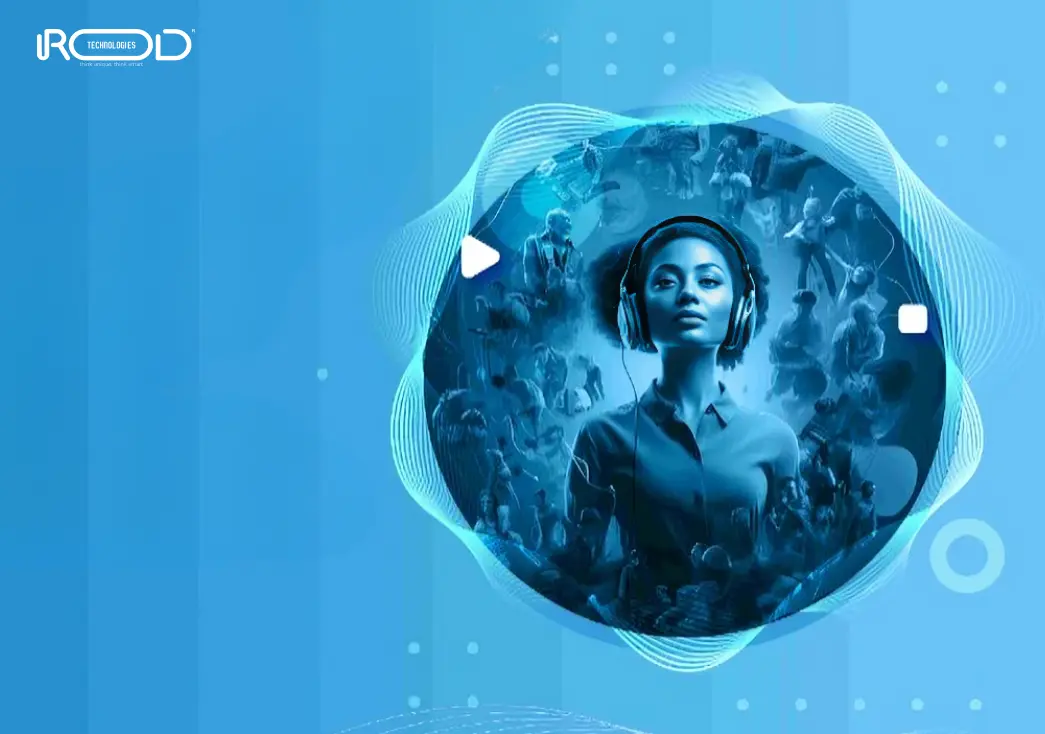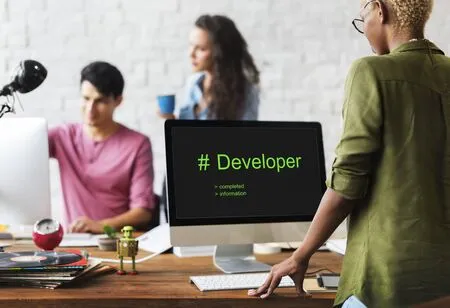Harmonizing the Future: A Deep Dive into How AI Enhances Music Apps

Right now, AI is a popular topic in a wide range of businesses, but it's particularly delicate when it comes to music or the arts in general. Numerous individuals are concerned that they might be abandoned as technology once again makes complete business models irrelevant, whereas others fear a further decline in the significance of human ingenuity.Certain individuals are concerned about the possibility of job loss.
The world of music has always been heavily reliant on technology. The music industry is changing quickly thanks to technologies like multi-track recording, loop pedals, digital production software and the best app developers in India . However, in terms of its effects, artificial intelligence is the most disruptive technology. In 2018, Taryn Southern used AI to create an entire album. Different AI music-making software tools, including Google NSynth, IBM Watson Beat, AIVA, and Amper, can either produce new music entirely or only improve the old song. Let's examine what the future of artificial intelligence in the music industry holds:
AI in Music Advantages
AI already plays a big part in the music business. Large volumes of data can be analyzed to find patterns and trends that people are unable to detect. This enables musicians and other creators to choose the songs to promote and the optimum times to do so. This is excellent for social media users who want to reach a large audience but don't know how or when to do it. AI is even capable of analyzing crowd sentiment and predicting whether or not a song will be commercially successful. Some AI skill sets still need to be developed because this technology is still relatively new in the music industry. With the rate at which artificial intelligence is developing, significant progress will undoubtedly be made soon.
Recommended reading: Is ChatGPT A Threat To Developers.
AI is capable of mixing and mastering music. The "left and right" abbreviation for "left and right" in the name of the online music program LANDR can master a full, release-ready recording while maintaining the standard loudness levels for streaming services like Spotify and Apple Music. To assess and improve the sound quality of audio recordings, it employs cutting-edge algorithms and machine learning methods.
It can take several hours, or even days, to completely master a song. Producers and musicians can upload their tracks to LANDR and get professionally mastered versions in a matter of minutes. To enhance the sound and make it more polished and balanced, the platform uses a combination of EQ, compression, stereo enhancement, and other processing techniques.Another audio company using AI in some of its plugins is Izotope, which makes tools for mixing and mastering. Producers and engineers may speed up their workflow with the use of products like Nectar, Neutron, and Ozone thanks to technology.
For instance, Ozone's master assistant lets you choose the genre or type of mastering that best suits the music you're working on, enabling producers to master entirely independently and do away with the need for a mastering engineer. AI also has an impact on songwriting and composition. Based on already-existing musical data, it can produce original lyrics, melodies, and compositions. The AI will examine existing music and make an effort to create a new composition using the same or comparable elements. The song "Daddy's Car" was composed by artificial intelligence at Sony's computer science lab in Tokyo, Japan, and is an intriguing example of this. It was produced to have the same musical style as a song by The Beatles.
- Music Streaming: Spotify’s Success
The world's most popular music service app is Spotify. Their accomplishments are attributable to the early use of artificial intelligence. The developers of Spotify have consistently pushed the boundaries of AI technology. To provide a highly customized app experience, the music streaming service analyzes listeners' geographic location, playlist information, keyword preferences, and song preferences. In order to make informed decisions and provide pertinent information, Spotify employs algorithms.
- Machine learning for audio processing
Audio processing is one of the most exciting uses of AI in music. Audio processing utilizing neural networks and machine learning will be a part of the future of music. In its continuing NSynth project, Magenta (owned by Google) studies the qualities of existing sounds to produce new ones. Future AI will become proficient in signal processing tasks. Another excellent example of AI that markets, distributes, and enhances soundtracks for musicians is LANDR.
Also read The Battle for the Future of AI: Google Bard vs ChatGPT.
- AI-based composition of music
A number of software programs, including Flow Machines, AIVA, and Amper, use deep learning technology to generate music. For instance, AIVA uses AI music creation to produce moving soundtracks. AIVA is used by artists as a creative assistant that helps them save a lot of time. Future technology will be more powerful and easily available. Additionally, AI music software will have the ability to profit from their works.
- Production of music
According to the World Economic Forum's most recent forecast, AI will eliminate 75 million jobs while adding 133 million to the music industry. The cause is fairly clear. If artists can concentrate on the creative aspect, artificial intelligence can considerably increase their production. Amper Music is an excellent illustration of an all-purpose AI music program that can not only write creative, license-free music but also produce and perform. Users are free to select the length, tempo, style, and mood in accordance with their preferences.
- Making Songs has become Simple
AI in music can be used for more than only creating, processing, and producing. Artificial intelligence currently has a limited knowledge of song structure. According to experts, 20–30% of the top 40 chart-topping songs will have been partially or totally created using AI. One such instance of AI-powered songwriting software is Amadeus Code. With a single tap, users can instantly produce melodies, and to access the file, they can select a premium option.
Recommended reading: How AI Can Help Mobile Apps for Healthcare.
Going Forward
Some people who read this might doubt whether artificial intelligence can truly compete with human creativity and art. The future of AI in music is still a mystery that will be solved through time. AI might eventually stop being a musician's assistance and start performing on its own. The same is true with self-driving automobiles that use AI. One cannot, however, discount AI's tremendous advantages for the music business. For example, SMEs, users of social media, and developers of video games can all use AI to create their own soundtracks. Furthermore, AI has the potential to be a trustworthy songwriting tool for both producers and artists. However, for the time being, artificial intelligence is merely enhancing human creativity and not taking the place of it. Artificial intelligence will become more and more prevalent in music promotion and distribution businesses in the near future. In addition, artificial intelligence is a fantastic technology for fans who wish to explore the world of music. Hire app developers in India for creating superb music apps that can create tremendous changes in the industry.

